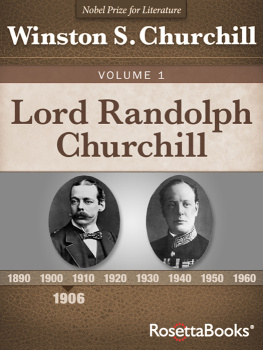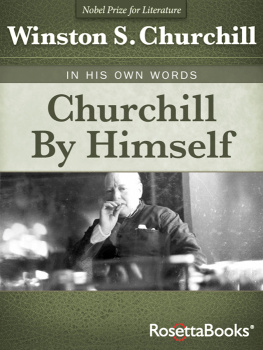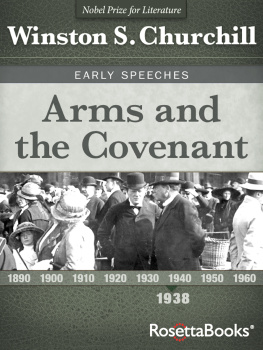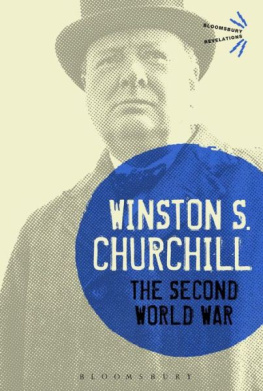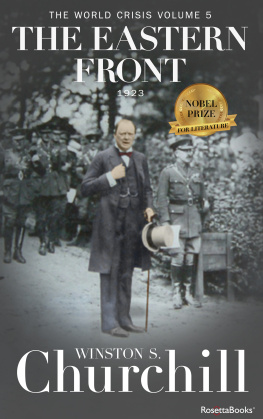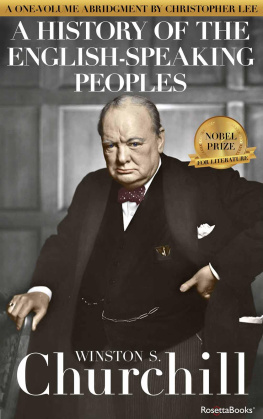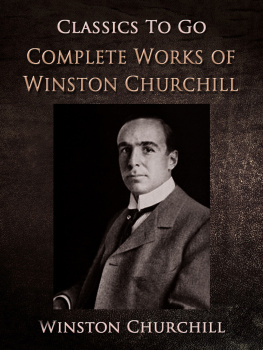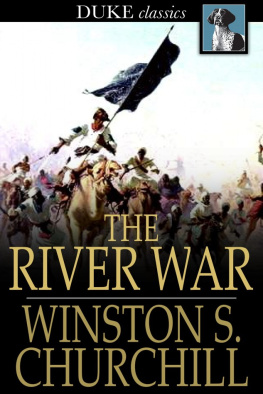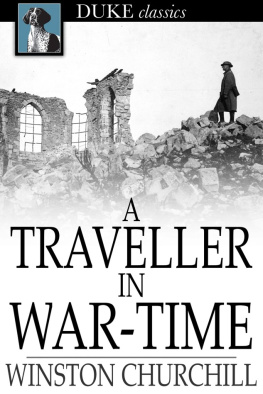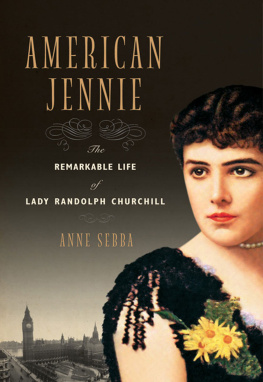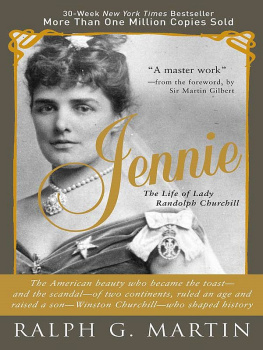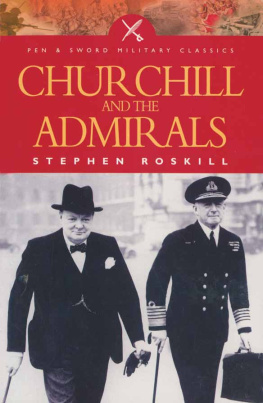Copyright
Lord Randolph Churchill
Volume I
First published in 1906. Estate of Winston S. Churchill
Cover art to the electronic edition copyright 2014 by RosettaBooks, LLC.
All rights reserved. No part of this book may be used or reproduced in any form or by any electronic or mechanical means, including information storage and retrieval systems, without permission in writing from the publisher, except by a reviewer who may quote brief passages in a review.
Image of Lord Randolph Churchill and that of his son Winston Churchill reproduced by permission of Curtis Brown, London, on behalf of The Broadwater Collection, an archive of photographs owned by the Churchill family and held at the Churchill Archives Centre, Cambridge.
Electronic edition published 2014 by RosettaBooks, LLC, New York.
Cover jacket design by Alexia Garaventa
ISBN e-Pub edition: 9780795329739
AUTHORS PREFACE
In the spring of 1893 Lord Randolph Churchill, feeling that he had slender expectations of long life, placed all his papers, private and official, under a trust-deed which consigned them at his death to the charge of two of his most intimate political friends, Viscount Curzon (now Earl Howe) and Mr. Ernest Beckett (now Lord Grimthorpe). As he made a practice of preserving almost every letter he received, the number of documents was sufficient to fill eleven considerable tin boxes. Subject to the conditions prescribed in the trust-deed in regard to matters affecting the India Office or the Foreign Officewhich have, of course, been strictly observedthese papers were placed in my hands by my fathers literary executors in July 1902, for the purpose of my writing a full account of his life and work. I am deeply sensible of the confidence implied and of the honour conveyed in that commission, and during the three and a half years which have passed since I accepted it, I have diligently labouredin spite of some political distractionsto discharge it to the best of my ability.
Sir Michael Hicks-Beach (having consulted with the late Lord Salisbury) and Lord Rosebery have expressed the opinion that the story of Lord Randolph Churchills life may now be fully told without impropriety towards individuals or the public. Indeed, it is high time to do so. Lord Randolphs part in national affairs is not to be measured by long years of office. No great legislation stands in his name upon the statute book. He was a Chancellor of the Exchequer without a Budget, a Leader of the House of Commons but for a single session, a victor without the spoils. No tangible or enduring recordsunless it be the Burma provinceexist of his labours, and the great and decisive force which he exerted upon the history of the Conservative and Unionist party might be imperfectly realised by a later generation, unless it were explained, asserted, and confirmed by the evidence of those who came in contact or collision with his imperious and vivifying personality.
For a thing so commonly attempted, political biography is difficult. The style and ideas of the writer must throughout be subordinated to the necessity of embracing in the text those documentary proofs upon which the story depends. Letters, memoranda, and extracts from speeches, which inevitably and rightly interrupt the sequence of his narrative, must be pieced together upon some consistent and harmonious plan. It is not by the soft touches of a picture, but in hard mosaic or tessellated pavement, that a mans life and fortunes must be presented in all their reality and romance. I have thought it my duty, so far as possible, to assemble once and for all the whole body of historical evidence required for the understanding of Lord Randolph Churchills career. Scarcely anything of material consequence has been omitted, and such omissions as have been necessary are made for others sakes and not his own. Scarcely any statement of importance lacks documentary proof. There is nothing more to tell. Wherever practicable I have endeavoured to employ his own words in the narration; and the public is now in a position to pronounce a complete, if not a final, judgment.
I have been fortunate in the abundance of the materials supplied me. In addition to Lord Randolph Churchills tin boxes with their ample stores, there was at hand an invaluable series of scrap-books, containing every conceivable newspaper comment and cartoon, collected by his sister, Lady Wimborne, and covering the whole period of his active political life. But most of all I am indebted to those many friends, irrespective of political party, who either by allowing their letters to be printed, or by reading the proof-sheets, have enabled me to compile what may, without presumption, be called an authoritative account. I accept, of course, in the fullest sense, exclusive responsibility for whatever is written here; but to Sir Michael Hicks-Beach, first of all, my grateful acknowledgments are due, for not only has he with the greatest care and pains thoroughly revised the whole book, but furnished me, besides, with extensive memoranda in respect of those chapters with the events of which he was specially concerned.
The biographer of an English statesman is often able to conduct his hero prosperously through the recognised educational experiences, and to instal him at an early age in some small office, whence his promotion in due course is assured. It is otherwise with the life of Lord Randolph Churchill. No smooth path of patronage was opened to him. No glittering wheels of royal favour aided and accelerated his journey. Whatever power he acquired was grudgingly conceded and hastily snatched away. Like Disraeli, he had to fight every mile in all his marches. And this account will, I think, be found to explain in almost mechanical detail the steps and the forces by which he rose to the exercise of great personal authority, as well as the converse process by which he declined.
I have naturally been led to deal more fully with his public career than with his private life. With the exception of the first two chapters and the last, this story lies in a period of only ten yearsfrom 1880 to 1890, and not less than half of its compass is concerned with the succession of fierce political crises which disturbed the years 1885 and 1886. The epoch is brief; but so crowded is it with incident and accident, so full of insights and sidelights upon the workings of party and constitutional machinery in modern times, that it deserves the closest examination. And I hope it may be attributed to the authors failings, and not to the actions and character of Lord Randolph Churchill, if the reader is not attracted by an authentic drama of the House of Commons.
WINSTON SPENCER CHURCHILL.
B LENHEIM P ALACE , W OODSTOCK:
November 1, 1905.
Heard are the voices,
Heard are the sages,
The worlds and the ages:
Choose well; your choice is
Brief and yet endless.
Here eyes do regard you,
In Eternitys stillness:
Here is all fulness,
Ye brave, to reward you;
Work and despair not.
Goethe.


